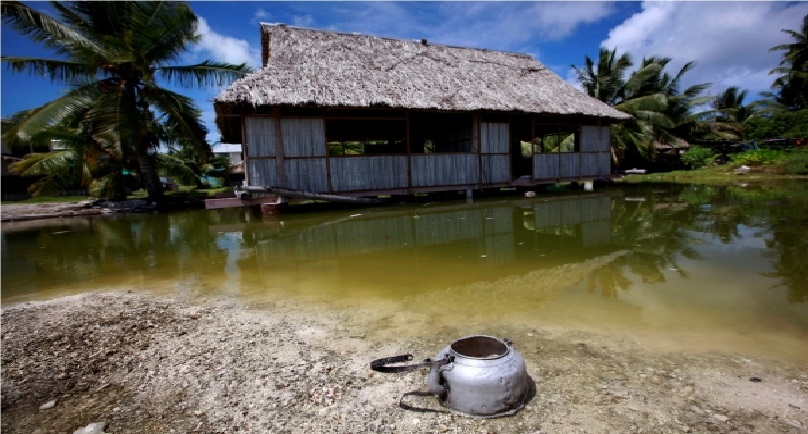By Sasha Pei-Silovo – EM TV, Port Moresby
Papua New Guinea, like other Pacific island nations, is no stranger to the effects of climate change, most evident in lowland coastal and island communities where rising sea levels continue to threaten the people’s way of life.
On a global front, the head of the Catholic Church is in Washington and will address the U.S Congress on September 24. Pope Francis has said that a “revolution” is needed to combat climate change; rightly so, considering the fast-felt impacts of climate change on global communities.
While the Pope meets with US leaders, a “Moral Action for Climate Justice” rally will also take place at the iconic National Mall in downtown Washington, D.C.
Organisers of the rally say that the meet is to address the climate crisis.
Washington psychiatrist, Lise Van Susteren, states that climate change also causes psychological problems. Susteren is the co-author of a study on the psychological impact of climate change. She argues that in times of extreme weather, natural disasters and rising temperatures, there is a high probability of increased anxiety, fear and depression. She adds that widespread outbreaks of violence are also a possible outcome when food becomes scarce.
With PNG hit hard by the worst El Niño in years; should we, as a nation also take into account the psychological impact the severe weather patterns are having or could have on local communities in areas affected?
According to Van Susteren, global warming would lead to a surge in domestic violence, drug and alcohol abuse and criminal activities. These, might I add, are some of the biggest problems already faced in PNG; the social implications of climate change cannot be ignored in a country that struggles with gender based violence, lawlessness, among other issues.
Van Susteren also highlights the need for post-traumatic counselling for people who have lost their homes either through flooding or fires. Already, we have heard of homes being victims of bush fires and of families left homeless with nothing left to their name, but the clothes they wear.
Yes, Papua New Guineans are known to be strong and resilient, but in the face of disaster and tragedy, one can only imagine the impact on the human brain.
The “Moral Action for Climate Justice” rally calls for action from medical professionals to be at the forefront of combating climate change and for the recognition of the psychological impact that climate change has, and could have, on people.


